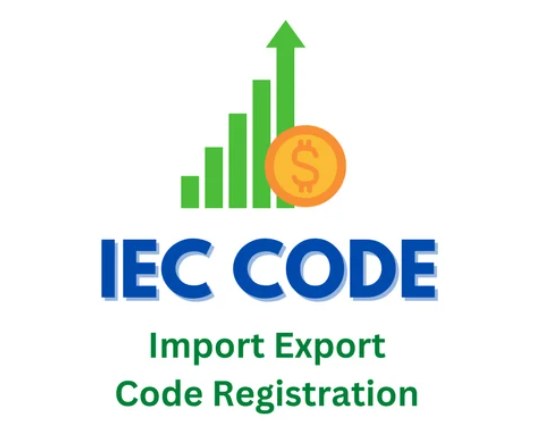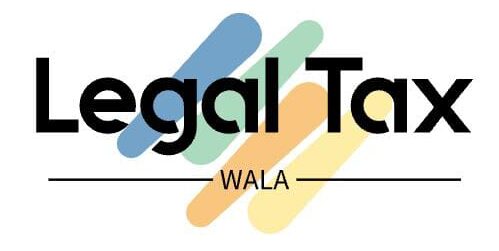Import Export Code (IEC)
Are you looking to venture into the realm of global trade? Whether you’re an individual entrepreneur or a seasoned business entity, navigating the intricacies of international trade demands a fundamental document: the Import Export Code (IEC).
- Expert assistance
- Complete online Process
- End To End Compliances solutions
- Track Application Status
Get Expert Assistance
3 Reasons Why Customers Love Us

Professionalism
Much, much more affordable than other professionals
All in One
Leave legal, tax and compliance to us
We Deliver
1200+ authentic reviews, industry leading average of 4.4/5
Welcome to Our Guide on Import Export Code (IEC)
Are you looking to venture into the realm of global trade? Whether you’re an individual entrepreneur or a seasoned business entity, navigating the intricacies of international trade demands a fundamental document: the Import Export Code (IEC). At Legal Tax Wala, we understand the importance of this code in facilitating seamless trade transactions, and we’re here to guide you through its significance, application process, and more.
Get Expert Assistance
What is an Import Export Code (IEC)?
An Import Export Code, commonly known as IEC, is a 10-digit identification number issued by the Directorate General of Foreign Trade (DGFT), under the Ministry of Commerce and Industry, Government of India. This code is mandatory for any individual or entity seeking to engage in import or export activities in India. Whether it’s importing goods for commercial purposes or exporting products to international markets, possessing a valid IEC is essential for smooth customs clearance and legal compliance.

Why is an IEC Important?
Legal Requirement
As per the Foreign Trade (Development and Regulation) Act, 1992, it is mandatory for businesses and individuals to obtain an IEC to engage in import/export activities.
Global Expansion
An IEC opens doors to global markets, allowing businesses to expand their reach and explore lucrative trade opportunities worldwide.
Customs Clearance
Customs authorities require a valid IEC for processing shipments, assessing duties, and maintaining trade records. Without it, importing or exporting goods becomes nearly impossible.
Bank Transactions
Banks mandate the submission of IEC for processing international transactions related to imports or exports. It serves as a crucial document for foreign exchange transactions and documentation purposes.
How to Obtain an IEC?
Obtaining an IEC is a relatively straightforward process. Here’s a brief overview:
- Eligibility Check: Ensure your business entity is eligible for obtaining an IEC. Both individuals and entities, including proprietorships, partnerships, companies, LLPs, and others, can apply for it.
- Online Application: The DGFT has streamlined the application process by introducing online application forms (Aayaat Niryaat Form – ANF 2A). Applicants need to register on the DGFT’s website and fill out the required details accurately.
- Document Submission: Prepare the necessary documents, including identity proof, address proof, bank certificate, and business entity proof, as per the prescribed format. Submit these documents along with the application form online.
- Fee Payment: Pay the requisite fee for processing the IEC application. The fee structure varies based on the category of the applicant.
- Verification and Approval: Once the application is submitted, it undergoes verification by the DGFT. Upon successful verification, the DGFT issues the IEC electronically, which can be downloaded from the portal.
Renewal and Modification
An IEC is valid for a lifetime and does not require renewal. However, any changes in the details provided during the application process, such as address or authorized signatories, require modification of the existing IEC.
Get Expert Assistance
Conclusion
In the dynamic landscape of international trade, possessing an Import Export Code is not just a regulatory requirement but a strategic asset for businesses aiming to explore global markets and foster growth. At Legal Tax Wala, we assist entrepreneurs and organizations in obtaining their IEC swiftly and seamlessly, empowering them to embark on their journey of international trade with confidence and compliance.
Ready to kickstart your import-export journey? Contact us today to navigate the IEC application process efficiently and unlock the doors to endless possibilities in global trade.
FAQ
The Import Export Code (IEC) is a 10-digit identification number issued by the Directorate General of Foreign Trade (DGFT), Government of India, to individuals or entities engaging in import/export activities.
Any individual or entity involved in importing or exporting goods or services from India requires an IEC. This includes businesses, traders, manufacturers, and even individuals engaging in international trade activities.
Yes, an IEC is mandatory for all types of imports and exports, except for goods and services specified under specific categories exempted by the DGFT.
An IEC is valid for the lifetime of the entity or individual and does not require renewal. However, any changes in the details provided during the application process necessitate modification of the existing IEC.
Yes, an IEC can be surrendered or cancelled if the entity or individual ceases to engage in import/export activities. The cancellation request must be submitted to the DGFT along with the required documents.
The documents required for obtaining an IEC include:
- Identity proof of the applicant (e.g., PAN card, Aadhaar card, passport)
- Address proof (e.g., voter ID, driving license, utility bill)
- Bank certificate or canceled cheque
- Business entity proof (e.g., GST registration certificate, partnership deed, company incorporation certificate)
Yes, an IEC obtained for a specific entity can be used for all branches or locations of that entity involved in import/export activities. However, the details of all such branches should be mentioned in the IEC application.
Yes, applicants can track the status of their IEC application online through the DGFT’s website using the application reference number provided during the submission of the application.
Yes, an IEC allows entities or individuals to engage in both import and export activities. It serves as a unique identification number for facilitating customs clearance and complying with international trade regulations.
Engaging in import/export activities without a valid IEC is illegal and can attract penalties, including confiscation of goods and imposition of fines by customs authorities. It is essential to obtain an IEC before commencing any international trade transactions.
These FAQs aim to address common queries regarding the Import Export Code (IEC) and its significance in international trade. For further assistance or clarifications, feel free to reach out to Legal Tax Wala specializing in IEC- related matters.
WHY CHOOSE LEGALTAXWALA ?
Keeping Your Success in Sight We Give Legal Shape To Your Business needs.
Legal Tax Wala is a team of legal experts that combined tech-driven tools with the legal experience to provide complete business consultations services. We possess the understanding to take care of your requirement.200+ CA/CS Assisted
TRANSPARENT PRICING
LOWEST FEES
ASSURED SATISFACTION
FASTEST SERVICES
MONEY BACK GUARANTEED
HOW IT WORKS
Book a Virtual Meeting
Our Client







Latest Post

Web Design Done Well: Delightful Data Visualization Examples
LessAccounting is 100% web-based, meaning it can be accessed from anywhere and there’s no software to install on your computer. You can easily use

How To Apply UX Principles To Embedded Systems: Learnings From The Field
LessAccounting is 100% web-based, meaning it can be accessed from anywhere and there’s no software to install on your computer. You can easily use

DevFest For Ukraine, A Charity Conference On The Future Of Tech ????????
LessAccounting is 100% web-based, meaning it can be accessed from anywhere and there’s no software to install on your computer. You can easily use
